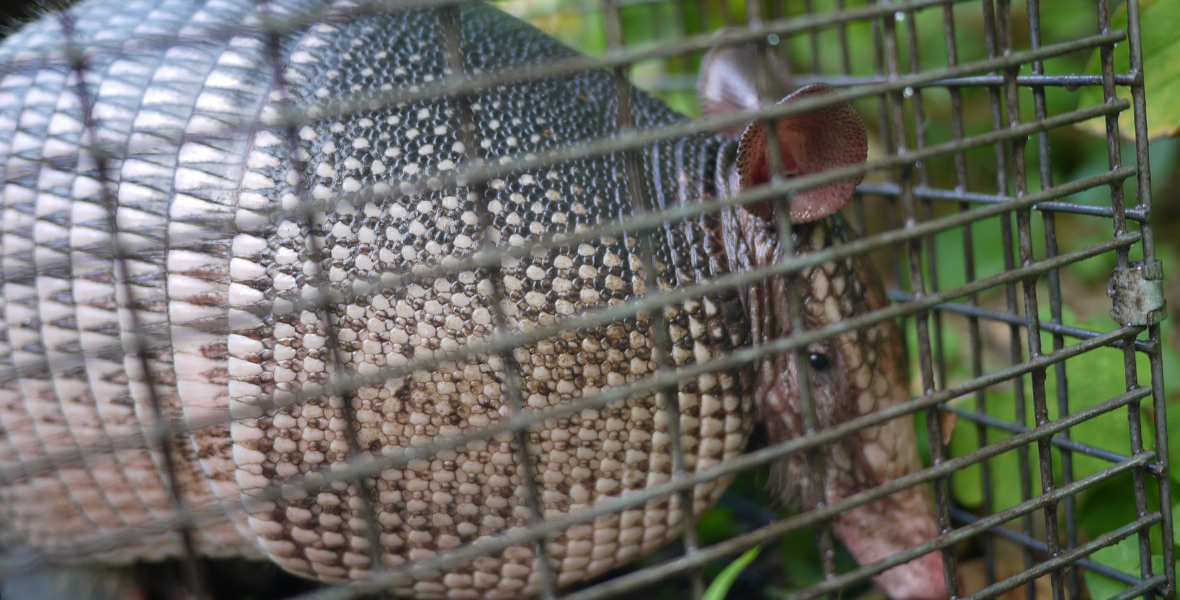- info@Indianapolisanimalattic.com
Call 24/7 for a free quote:
317-399-9080
Dangers of Armadillos to Your Pets
The tough exterior armor of the armadillo will give you a hint that the creature will be a defender and not an attacker. Their mouths are armed with tiny teeth which makes them harmless. In fact, when confronted with danger, their instinct would be to escape or to freeze. They have a docile behavior that will not pose any threat to our pets. Nonetheless, they can still carry pathogens, but the rate of transmission is significantly low.

Possible Threats of the Indianapolis Armadillos to Pets
Armadillo are fragile and small Indiana creatures that will often be found in our yard. They are adept swimmers, runners, and diggers. They can hold their breath underwater for about six minutes. Their snouts which resembles the appearance of the pig will be used in hunting for food. They are known for having a poor eyesight, but their incredible sense of smell offset that characteristic. They are also host of numerous diseases that can sometimes cause irreparable damages to our nerve.
The Mycobacterium Leprae Bacillus
There are various diseases that have been related with this animal such as the leprosy. Fortunately, the bacillus that is causing leprosy is delicate and will immediately die if they fail to find a suitable host. They require an ideal temperature such as the human body temperature to proliferate. The disease can only be acquired from a direct interaction with the armadillo. While the bacillus does not pose a threat to our pets, we should still be careful in interacting with them.
Rabies Virus
While the teeth of the Indianapolis armadillos are small to even penetrate the skin of our pets, they are still armed with a formidable claw that can cause serious injury to our pets. Armadillos are also possible transmitter of the rabies virus. Armadillo has the habit of licking their toes. Their saliva that contains the virus will be found in their claws. In case your pet has acquired an injury from a fight with an armadillo, take them to your local veterinary office immediately.
Salmonellosis
Since the environment in the wild is not controlled, they can also carry salmonellosis that can infect our pets. The dogs and cats that have been affected by salmonellosis will experience adverse effect on their blood regulation. The disease can be transmitted through the fecal matter of an infected creature. It will not be impossible for our pets to unintentionally ingest their fecal matter by eating or drinking a contaminated food.
Generally, our pets will be safe in the presence of the armadillo. They are not aggressive and will not attack our pets. Nonetheless, it is still not advisable to ignore the presence of this creature. Their ability to build a complex tunnel can lead to various damages. It will make our lawn look unsightly and maintenance of our landscape will prove to be tough. In order to avoid the damages associated with the animal, you will have to promptly deal with the situation with the help of the professional wildlife remover.
Visit our Indianapolis wildlife trapping home page to learn more about us.

